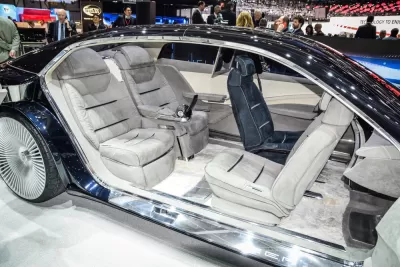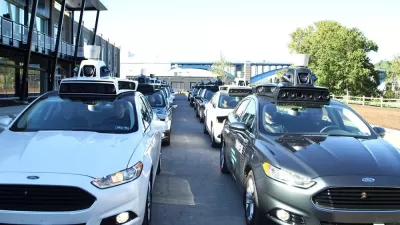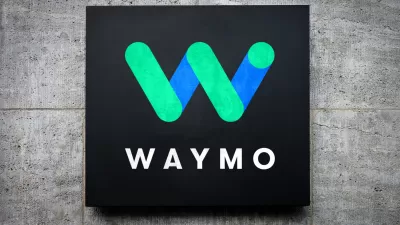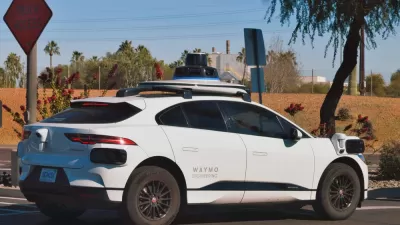It's all about the business model.

David Roberts writes about a future of autonomous vehicles, predicting an angle that hasn't been discussed in detail before, but seems all-too-obvious. Roberts is talking about advertising as a business model for the fleets of shared vehicles that many assume will drive individual, private transportation.
The signs of this eventuality are already apparent, writes Roberts, but here's the core of the prediction in its full realization:
So we have to at least consider the possibility that the future of transportation could be dominated by large fleets of shared, electric, autonomous vehicles funded by revenue from advertising — that our smart vehicles could become our next smartphones, tools to deliver our attention to advertisers.
The implications of this prediction don't just have consequence for the user experience of riding in a driverless car.
If shared fleets of autonomous vehicles come to be funded primarily by advertising, we will end up with an auto industry even more committed to auto supremacy than the current one — at best a reluctant partner in any effort to make cities denser and more livable, at worst a committed foe.
FULL STORY: Here’s the real nightmare scenario for self-driving cars

Alabama: Trump Terminates Settlements for Black Communities Harmed By Raw Sewage
Trump deemed the landmark civil rights agreement “illegal DEI and environmental justice policy.”

Planetizen Federal Action Tracker
A weekly monitor of how Trump’s orders and actions are impacting planners and planning in America.

The 120 Year Old Tiny Home Villages That Sheltered San Francisco’s Earthquake Refugees
More than a century ago, San Francisco mobilized to house thousands of residents displaced by the 1906 earthquake. Could their strategy offer a model for the present?

In Both Crashes and Crime, Public Transportation is Far Safer than Driving
Contrary to popular assumptions, public transportation has far lower crash and crime rates than automobile travel. For safer communities, improve and encourage transit travel.

Report: Zoning Reforms Should Complement Nashville’s Ambitious Transit Plan
Without reform, restrictive zoning codes will limit the impact of the city’s planned transit expansion and could exclude some of the residents who depend on transit the most.

Judge Orders Release of Frozen IRA, IIJA Funding
The decision is a victory for environmental groups who charged that freezing funds for critical infrastructure and disaster response programs caused “real and irreparable harm” to communities.
Urban Design for Planners 1: Software Tools
This six-course series explores essential urban design concepts using open source software and equips planners with the tools they need to participate fully in the urban design process.
Planning for Universal Design
Learn the tools for implementing Universal Design in planning regulations.
Clanton & Associates, Inc.
Jessamine County Fiscal Court
Institute for Housing and Urban Development Studies (IHS)
City of Grandview
Harvard GSD Executive Education
Toledo-Lucas County Plan Commissions
Salt Lake City
NYU Wagner Graduate School of Public Service





























